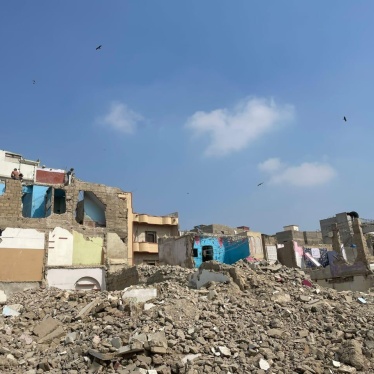European officials, especially ones posted in China, don’t often utter the words “sovereign” and “Dalai Lama” in the same sentence. But on Wednesday Belgium’s ambassador to Beijing, Bernard Pierre, did just that when he characterized the Dalai Lama’s cancellation of his planned visit to Brussels as a “sovereign decision.”
Sadly, Pierre’s language was hardly a reflection of Belgian respect for the Dalai Lama’s rights. It was the reverse. The Dalai Lama had not simply changed his mind and opted not to visit Brussels. Instead, the Belgian government simply rolled up the welcome mat due to Chinese pressure to deny the Dalai Lama a visa.
This is a particularly egregious reversal for several reasons, most notably that the Dalai Lama was welcomed by the EU in Brussels last June, and that the cancellation comes on the eve of the EU-China human rights dialogue. Equally important, it comes at a time when abuses of Tibetans’ human rights—civil, political, social, economic, and cultural rights—are under an assault unlike any in the past decade.
Over the past several years, Tibetans have continued to tell Human Rights Watch about abuses for speaking out against Chinese political repression or attempts to practice their religion. Now they speak about the slow obliteration of their very identity—their livelihoods, their right to choose where they live, their ability to be educated in their languages—and the stark choices they face: to remain in Tibetan areas under these constraints, or to flee to other countries.
Since 2000, the Chinese government has been implementing resettlement, land confiscation, and fencing policies in pastoral areas inhabited primarily by Tibetan herders, drastically curtailing their livelihood. Many Tibetan herders have been required to slaughter most of their livestock and move into newly built housing colonies in or near towns, abandoning their traditional way of life. Chinese authorities explain their actions as a necessary response to environmental crises, yet this seems odd, as environmentally damaging infrastructure projects proceed in the same areas.
The “comfortable housing” campaign, which began in 2005, requires some impoverished Tibetan villagers, particularly those who live next to main roads, to rebuild their houses in accordance with strict official specifications within two to three years. The reconstruction was supposed to be jointly subsidized by the government and villagers’ families, but many Tibetans have presented credible allegations of embezzlement by local officials of the government funds, while they are forced to take out bank loans to cover their obligations. To add insult to injury, Tibetans are expected to contribute free manual labor and the actual beneficiaries have not been poor families but the moderately well-off, whose moves into such housing have been extensively filmed and shown on television, apparently to give an impression of government largesse and new regional prosperity.
In spite of the Chinese government’s 2006 pledge to provide nine years of compulsory education, Tibetans are also facing fewer options for schooling. Tibetans from the Tibet Autonomous Region (TAR) and other provinces with large Tibetan populations report with growing frequency the difficulty of finding schools that teach in their languages. Many are asked to pay up to $300 a year in school fees; this is often more than they make in a year. This situation is of course exacerbated by strict controls on admitting students to monasteries, which for years have been traditional sources of education.
These realities prompt thousands of Tibetans each year to leave. As one young man recently told us, “What is there to go back for? I could not go to school or a monastery. I could not do the only work I know how to do. I could not be Tibetan anymore.” Yet leaving hardly solves their problems—although neighboring Nepal has long tolerated large numbers of Tibetans, constant pressure from Beijing on Kathmandu leaves Tibetans there in a vulnerable position. And the journey from Tibet to Nepal is hardly safe: last September, Chinese border police opened fire on an unarmed group of Tibetans trying to reach the border, shooting and killing at least one 17-year-old.
The international community has in general remained silent on these issues in the face of consistent Chinese pressure, though the EU has undertaken some noteworthy efforts. Now is not the time to retreat—to the contrary, the problems facing Tibetans have become more complex, and require regular, thoughtful responses. Should this recent decision to succumb to Chinese pressure stand, it isn’t the Dalai Lama’s sovereignty that’s in question—it’s Belgium’s.
Sophie Richardson is Deputy Director of the Asia Division of Human Rights Watch.





